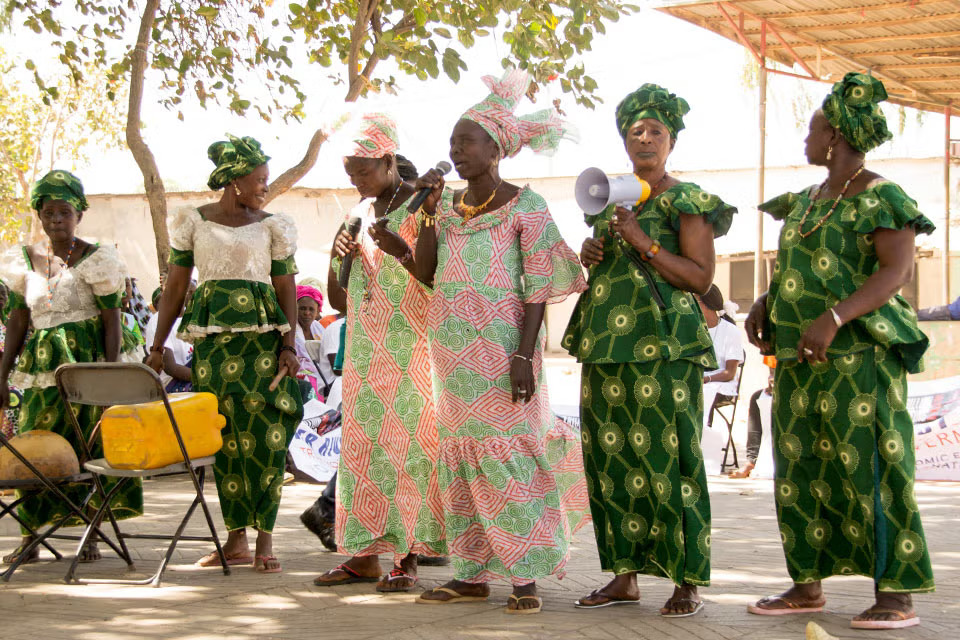77 laws adopted, revised, or repealed to further advance and protect the rights of women and girls, in line with international norms and standards (SP Indicator 0.1.4)
In 2024, Kazakhstan enacted one of its most comprehensive legal reforms to protect women and children from gender-based and domestic violence, potentially benefiting 10.3 million women and girls. Supported by UN Women and based on CEDAW recommendations, the reforms criminalize domestic violence, shift evidence-gathering responsibilities to law enforcement, and strengthen child protection laws. UN Women also supported the rollout of Family Support Centres, with 65 now operational and plans to expand to 208 by 2027, ensuring long-term support for at-risk families.
As part of its commitment to safeguarding women’s rights, UN Women supported efforts in The Gambia to uphold the national ban on female genital mutilation. Through collaboration with civil society, traditional leaders, parliamentarians, and human rights bodies, including the African Commission and UN system, UN Women helped mobilize broad support. In a country where over 73% of women and girls have undergone FGM, the government’s decision—backed by UN Women—to oppose repealing the law marks a critical step forward for millions.

Kazakhstan
In 2024, Kazakhstan enacted one of its most comprehensive legal reforms to protect women and children from gender-based and domestic violence, potentially benefiting 10.3 million women and girls. Supported by UN Women and based on CEDAW recommendations, the reforms criminalize domestic violence, shift evidence-gathering responsibilities to law enforcement, and strengthen child protection laws. UN Women also supported the rollout of Family Support Centres, with 65 now operational and plans to expand to 208 by 2027, ensuring long-term support for at-risk families.

The Gambia
As part of its commitment to safeguarding women’s rights, UN Women supported efforts in The Gambia to uphold the national ban on female genital mutilation. Through collaboration with civil society, traditional leaders, parliamentarians, and human rights bodies, including the African Commission and UN system, UN Women helped mobilize broad support. In a country where over 73% of women and girls have undergone FGM, the government’s decision—backed by UN Women—to oppose repealing the law marks a critical step forward for millions.

